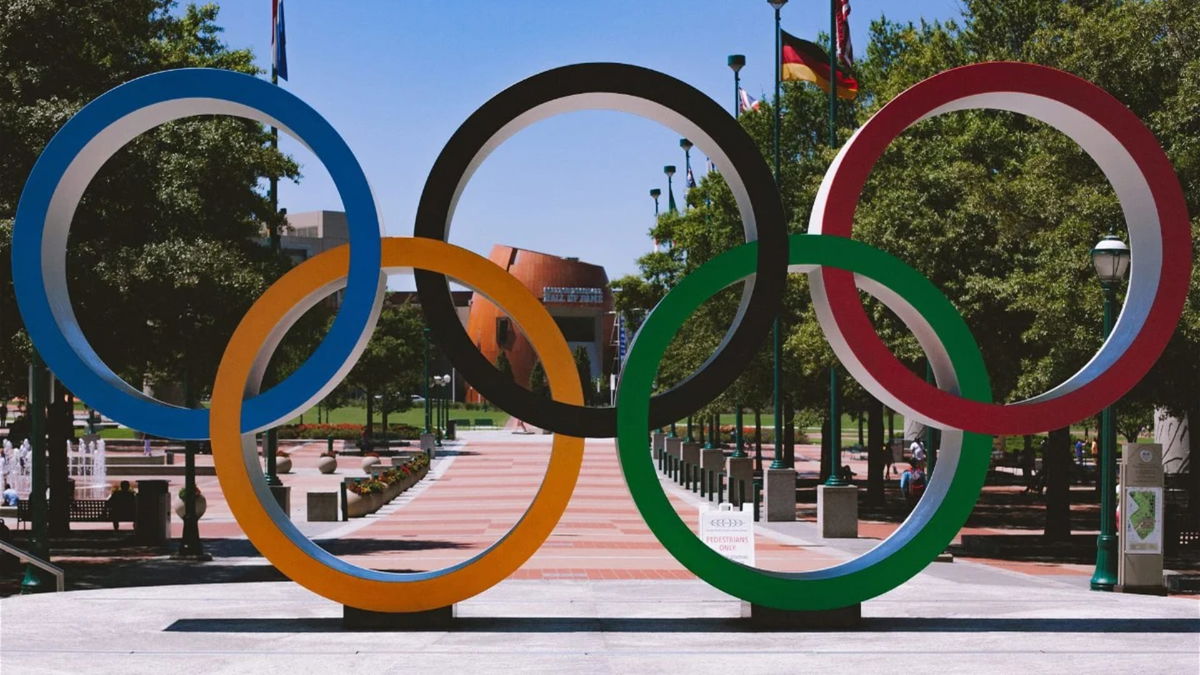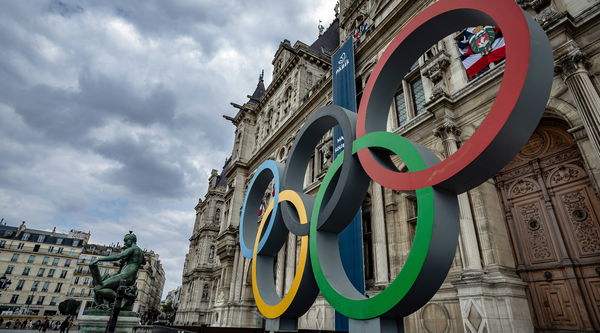

3 months to go for the Paris Olympics 2024! And so, the spotlight on international events has intensified. The Road to Paris has hit a bump for gymnasts from Russia and Belarus as the Russian Gymnastics Federation opted not to allow its gymnasts to participate in the Olympics, citing disagreements with certain conditions imposed by the International Olympic Committee (IOC). Following suit, Belarus also decided to forego participation, further complicating the situation.
Watch What’s Trending Now!
This decision has sparked debate among stakeholders, including Paris Mayor Anne Hidalgo, who advocated for a ban on athletes from Russia and Belarus from participating in the Olympics. While the situation remains unresolved, it reflects a historical trend of countries facing bans from the Olympics for various reasons.
ADVERTISEMENT
A ban from the Olympics brings out resolute messages
As of now, Russian and Belarusian athletes are still free to participate in the Olympics. But for that, they need to obey certain ordeals, such as participating without the flags from the IOC and other stakeholders. Otherwise, a ban will loom over the athletes as well. However, in the 2016 and 2020 Summer Olympics as well, Russia faced a similar cumbersome issue.

ADVERTISEMENT
Russian fate in the 2016 and 2020 Olympics
ADVERTISEMENT
In those two editions, Russian athletes did not face a full-phase ban order firsthand. However, a large chunk of complaints regarding the doping charges catapulted the issue. As per reports, the weightlifting and track and field squads violated the doping rules in large numbers. Ultimately, the entire issue resulted in Russia’s ban from those Olympic editions.
Top Stories
NFL Makes Final Punishment Decision on Shedeur Sanders Incident in Week 17

Chiefs Coach Abruptly Leaves Andy Reid’s Staff Amid Titans’ Rumored Interest in Matt Nagy

“I’d Be Dead”: NASCAR Legend Credits Kevin Harvick for Saving His Life

Jerry Jones Finally Acknowledges the Dak Prescott Gamble Hasn’t Paid Off; Confirms Painful Changes Ahead for Cowboys

Historic NASCAR Track to Change Its Iconic Name as City Council Moves to Auction It Up

Two-Time Venezuelan UFC Champion Clears Stance on Trump’s Takeover and Maduro’s Capture

Afghanistan had to face a bitter taste
The Sydney Olympics hosting committee didn’t approve of the Taliban regime’s viewpoint towards female participation in sports. Rather, the then regime banned Afghan women from stepping into any kind of sports openly.
ADVERTISEMENT
The IOC took stringent action against such prohibitory regulation. As a result, Afghan athletes found no entry in the 2000 Summer Olympics.
The apartheid regime gnawed multiple Olympics participation
South Africa and Zimbabwe faced most of the wrath because of the ruling from the apartheid regime. The regime was thoroughly against the human rights of certain classes.
ADVERTISEMENT
As a result, South Africa was handed an Olympic ban in 1964. The ban continued in subsequent years. The neighboring Zimbabwe had the same fate in the 1972 Olympics for the apartheid regime. Additionally, the African countries stated that they were not willing to participate in the Olympics if Zimbabwe was given a chance. These double whammies prompted the IOC to remain strict on Zimbabwe’s participation question.
Banning because of the World Wars
Germany remained at the receiving end for both the World Wars. In the 1948 London Olympics, Germany found Japan to serve the Olympic ban. The British government didn’t accept Japan’s role in World War II and its handling of prisoners of war (POW).
ADVERTISEMENT
On the other hand, in the 1920 Olympics, Austria, Hungary, and Turkey joined Germany on the banned list because of waging the world war. However, in the 1924 Olympics, only Germany served the penalty.
However, behind all these banning decisions, the International Olympic Committee has tried to remain neutral, showing no enmity toward the banned countries. Rather, most of the moments, the authority’s message remained clear- to serve the sports’ interest. This time as well, the committee has preferred a ‘slow walk’ process to take the last call on Russia and Belarus’s participation.
After the announcement of rules and regulations, balls are now in these two countries’ courts. However, the Russian Gymnastics Federation and the National Sporting Federation are still maintaining an uncompromising mood.
ADVERTISEMENT
Read more: Banned From Paris, Russia Is Planning It’s Own ‘Olympics’- Here’s What We Know
ADVERTISEMENT
ADVERTISEMENT
ADVERTISEMENT

